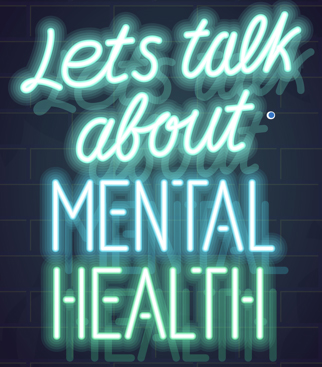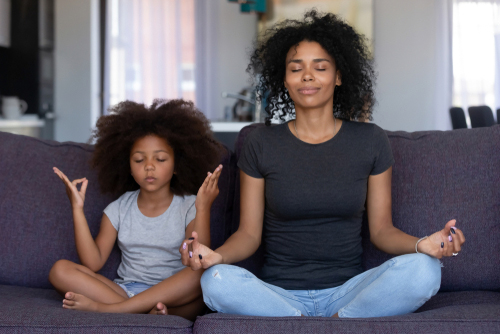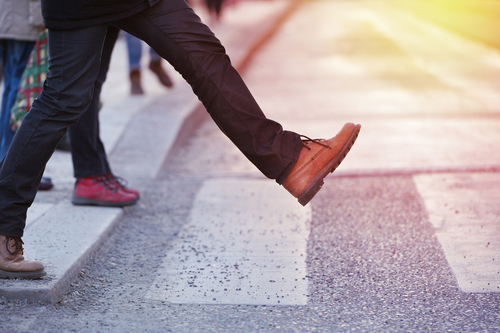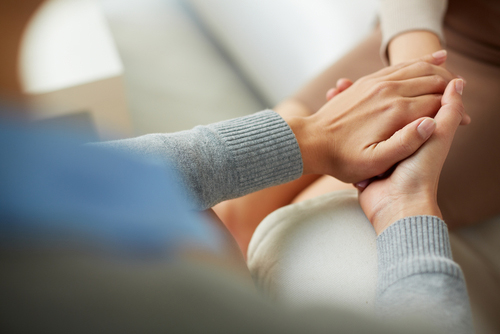Coastline College's mental health therapists share their tips and tricks for managing post-COVID-19 anxiety.

After spending a year and a half inside, it feels so good to finally step out into the sunshine and take a deep breath of fresh air. Sometimes I forget I spent the last year and a half sitting in my house under stay-at-home orders. I got used to wearing my mask everywhere and standing six feet apart from others. I don’t know about you, but now that restrictions have lessened, and things are opening up, I’m starting to feel a bit of anxiety about going back to normal. I am vaccinated, but I still feel hesitant about “rejoining society.”
Luckily, I was able to reach out to the new Coastline College mental health therapists.
Nooshin Neshatian, Briana Hurst, and Cheyenne Smith gave some tips on how to handle returning to normal as we come to what we can only hope for as the end of this pandemic. From going back to school to go going back to work, these tips can help you when dealing with the stress and anxiety that may come from dealing with a post-COVID-19 world.
Student Mental Health Services @ Coastline
Tip #1 Take It Slow
One of the first things Briana Hurst recommended to me was to take it slow. She said that “I know sometimes we can feel pressure from society to jump right in and get right back into our hectic schedules and fast pace lifestyles, but we have been dealing with some heavy stuff over this last year and a half. Go easy on yourself, and ease back into things.”
This could mean a multitude of things. It can mean holding off on things that aren’t that important, like avoiding going out to busy shopping centers or going to big parties. It can also simply mean taking more breaks throughout the day to recharge and refocus.
Don’t forget to:
Tip #2 Do Mindfulness Activities
Mindfulness activities can be defined as focusing intently on what you are feeling and sensing in the moment. This includes anything that relaxes the body and mind, like breathing exercises and guided imagery. Briana Hurst said, “When you find yourself feeling overwhelmed or maybe even panicked, being able to ground yourself and tune into the moment helps pull your mind away from getting lost in negative thoughts and can reduce physiological symptoms of anxiety such as a rapid heart rate.”
According to the Mayo Clinic, mindfulness activities can help reduce:

Tip #3 Limit Your News Intake
With so much going on in the world, it is easy to get lost in the whirlwind that is the headlines. I know I have spent too much time reading through the latest news and letting all the breaking news stress me out. Coastline therapist Nooshin Neshatian told me, “Research shows us that limiting news intake can help with anxiety and only seek news from official sources. The news can either overemphasize things or underrepresent things depending on the news station’s views. This can be very unsettling for many who are trying to cope.”
When looking at news to trying and keep up with COVID-19 headlines, keep these tips in mind:
Meet Coastline's Mental Health Therapists
Tip #4 Do Activities
Activities such as walking, drawing, and even seeing a friend if it’s safe can help reduce stress and anxiety. Personally, I find taking a walk and disconnecting from the internet for a bit helps me feel better when I am feeling down about the world.
Nooshin Neshastian told me, “Research shows us that going for a walk outside can help. Doing creative activities like drawing or knitting can help. If safe to do so, see a friend outdoors to bring back the social aspect that has been lost… It can be helpful to ground oneself. It’s easy to get overwhelmed by the trauma of the past and the fear of the future in regard to the pandemic. So, trying to stay in the here and now is very important.”
Try and destress by:

Tip #5 Reach Out For Help
The last tip, and probably the most important one, is to reach out for help. Talking to someone either other the phone or face-to-face can help you relieve anxiety and help you process what you are feeling. We have all gone through so much the past year; it’s easy to get lost in the grief. Just remember you are not alone, and getting help can be as simple as picking up your phone.
Briana Hurst said, “I encourage people who struggle with their mental health to reach out to someone! Whether that be a professional mental health therapist or a neighbor, even just a quick chat about things that concern you can relieve some anxiety and help you manage your day!”
Nooshin Neshatian also mentioned reaching out to someone, “if any students are struggling with mental health during or after the pandemic, they should seek counseling services either with Coastline or outside of Coastline. We have a great mental health program at Coastline. If students are interested, they should contact our main line.”

Coastline College and its mental health therapists work hard to help out students in need. The Coastline College website has many resources to help you if you are struggling with controlling your stress and anxiety as things open back up and students start to return to the classroom.
If you or someone you know is struggling with their mental health, you can: